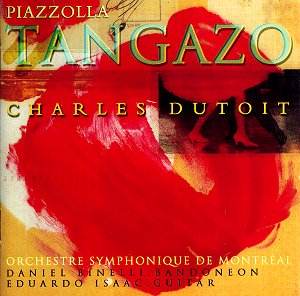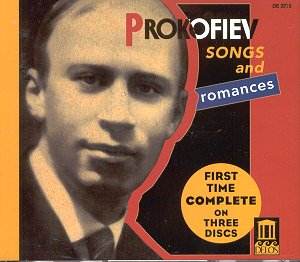 Composer: Astor Piazzolla
Composer: Astor Piazzolla
Works: Adios Nonino, Milonga del angel, Double Concerto for bandoneon and guitar, Oblivion, Tres movimientos tanguisticos portenos, Danza criolla, Tangazo
Performers: Daniel Binelli, bandoneon; Eduardo Isaac, guitar; Louise Pellerin, oboe; Orchestre Symphonique de Montreal; Charles Dutoit, conductor
Recording: Eglise St-Eustache, Montreal, 18 May and 18 October 2000
Label: Decca
Astor Piazzolla’s oeuvre, often positioned at the intersection of traditional tango and avant-garde classical music, continues to resonate with audiences decades after his passing. He redefined the tango through a lens of modernity, infusing it with jazz elements and complex harmonies, and this recording showcases a selection of works that exemplify his innovative spirit. The pieces included here range from the deeply personal “Adios Nonino,” a poignant homage to his father, to the more experimental “Tangazo,” which encapsulates his exploration of form and color.
The performance by the Orchestre Symphonique de Montreal under Charles Dutoit is marked by a vibrant interplay between the soloists and the orchestral fabric. Daniel Binelli’s bandoneon weaves a rich, emotive tapestry, particularly in “Adios Nonino,” where the opening’s abrasive textures transition into a hauntingly beautiful melody. The ensemble’s precision is commendable, especially in the rhythmic vitality of “Danza criolla,” where the brass interjections and percussive piano create a lively atmosphere that embodies the spirit of the tango. Eduardo Isaac’s guitar complements Binelli’s evocative playing, providing a harmonic foundation that subtly enhances the emotional core of the works.
Technical execution across the recording is exemplary, with each instrument clearly defined in the mix. The engineering captures the nuances of the bandoneon’s timbre while allowing the orchestral colors to bloom without overwhelming the solo lines. This balance is particularly effective in “Oblivion,” where the oboe’s lyrical lines intertwine with the bandoneon, creating a haunting dialogue that showcases Piazzolla’s gift for melody. The clarity of the recording allows listeners to appreciate the intricate textures and layers that Piazzolla’s music demands, a testament to the quality of the Decca production.
While Piazzolla’s music is often characterized by its rhythmic drive and emotional depth, the thematic material can, at times, feel thin, particularly in the “Double Concerto.” Here, the work’s structural integrity is questioned; it lacks the thematic development that would lend it greater distinction. The energetic second movement, however, offers moments of delight, even if the overall coherence eludes the listener. Comparatively, Piazzolla’s contemporaries, such as the Czech composer Václav Trojan, whose works remain relatively obscure, offer a reminder of the diverse potential within the accordion repertoire that deserves revisiting.
Piazzolla’s music, while frequently celebrated, sometimes leans into familiar tropes that may evoke a sense of déjà vu. Yet this recording, with its lush orchestration and spirited performances, highlights the enduring appeal of his tango nuevo. The disc serves as a vivid reminder of Piazzolla’s complex legacy—one that oscillates between innovation and repetition. The artistry displayed by the performers, coupled with the high-quality production values, makes for a compelling listening experience that will undoubtedly satisfy both newcomers and seasoned aficionados alike.



